Ask not what you can do for Linked Open Data but what Linked Open Data can do for you
 Presented by: Dr. Rob Warren, Post Doctoral Fellow, Institute for Big Data Analytics, Halifax, Canada
Presented by: Dr. Rob Warren, Post Doctoral Fellow, Institute for Big Data Analytics, Halifax, Canada
Time & date: 12 noon – 1.30pm, Monday 9 December 2013
Venue: Centre for Aboriginal Studies Boardroom, Curtin University
Digital Humanities scholars have long been hampered by the twin problems of getting the data into digital form and then managing ever-increasing amounts of it. Too often, the data behind the research becomes prisoner of a ‘research portal’ or is lost on someone’s laptop. In many ways the most successful data management tool so far is the spreadsheet – a 40 year-old technology!
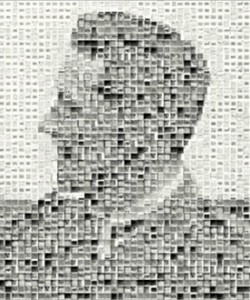 This talk is about linked open data, or the semantic web, an approach to the management of data that is showing promise for researchers, libraries and archives. The talk is non-technical and focuses on explaining how real-world research data problems can be solved. These include the identity of historical persons, dealing with incomplete or false data; identifying or referencing lost geographical locations and encouraging the serendipitous reuse of data in other projects. Real-world examples of problematic data from the Great War will be shown from the Muninn Project and the solutions using linked open data approaches.
This talk is about linked open data, or the semantic web, an approach to the management of data that is showing promise for researchers, libraries and archives. The talk is non-technical and focuses on explaining how real-world research data problems can be solved. These include the identity of historical persons, dealing with incomplete or false data; identifying or referencing lost geographical locations and encouraging the serendipitous reuse of data in other projects. Real-world examples of problematic data from the Great War will be shown from the Muninn Project and the solutions using linked open data approaches.
Cultural heritage in immersive displays: The virtual temple of Horus
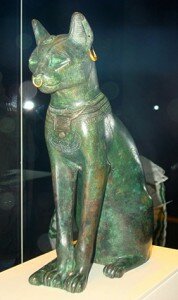 Presented by: Dr Jeffrey Jacobson, Executive Director, Public VR, Boston, USA
Presented by: Dr Jeffrey Jacobson, Executive Director, Public VR, Boston, USA
Time & date: 1pm – 2.30pm, Thursday 5 December 2013
Venue: HIVE via John Curtin Gallery, Building 200a, Curtin University
RSVP: essential
Historians and archaeologists often build evidence-based 3D computer models of complex architectural spaces to resolve questions and communicate theories. At Curtin University’s new Hub for Immersive Visualisation and eResearch (HIVE), visitors can literally stand inside a 3D computer generated model. This allows the viewer to see the interior spaces of a digital reconstruction exactly as the historian or archaeologist imagines it.
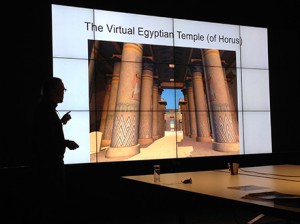 In this seminar, Dr. Jacobson will present the Virtual Egyptian Temple of Horus which embodies key elements of cult temples in Egypt’s late period. Dr. Robyn Gillam at York University, Canada, interpreted the original sources for this project while Dr. Jacobson led the team that built it. He is utilising the temple to demonstrate how immersive displays at the HIVE reveal information not readily visible with a computer monitor. Outcomes of Dr Jacobson’s recent research include the development of superior learning skills by children who interact with immersive displays.
In this seminar, Dr. Jacobson will present the Virtual Egyptian Temple of Horus which embodies key elements of cult temples in Egypt’s late period. Dr. Robyn Gillam at York University, Canada, interpreted the original sources for this project while Dr. Jacobson led the team that built it. He is utilising the temple to demonstrate how immersive displays at the HIVE reveal information not readily visible with a computer monitor. Outcomes of Dr Jacobson’s recent research include the development of superior learning skills by children who interact with immersive displays.
Knowledge Unlatched: Enabling open access for scholarly books
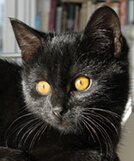 Presented by: Dr Lucy Montgomery, Vice Chancellor’s Research Fellow, Queensland University of Technology and Deputy Director, Knowledge Unlatched
Presented by: Dr Lucy Montgomery, Vice Chancellor’s Research Fellow, Queensland University of Technology and Deputy Director, Knowledge Unlatched
Time & date: 12 noon – 1.30pm, Monday 4 November 2013
Venue: Humanities Boardroom (209: 214), Curtin University Bentley campus
Abstract: Although digital technology has made it possible for many more people to access content at no extra cost, fewer people than ever before are able to read the books written by university-based researchers. This workshop explores the role that open access licenses and collective action might play in reviving the scholarly monograph: a specialised area of academic publishing that has seen sales decline by more than 90 per cent over the past three decades. It also introduces Knowledge Unlatched an ambitious attempt to create an internationally coordinated, sustainable route to open access for scholarly books. Knowledge Unlatched is now in its pilot phase.
 View slideshow of Lucy’s presentation.
View slideshow of Lucy’s presentation.
See also Lucy’s co-authored policy submission – UK design as a global industry – for the Big Innovation Centre (London), in relation to the copyright reform process in the UK.
Parody as Political Participation: Funny Videos and Fan Clusters in China
 Presented by: Dr Henry Li, CCAT Research Fellow, Curtin University
Presented by: Dr Henry Li, CCAT Research Fellow, Curtin University
Time & date: 12 noon – 1.30pm, Wednesday 30 October 2013
Venue: Humanities Boardroom (209: 214), Curtin University Bentley campus
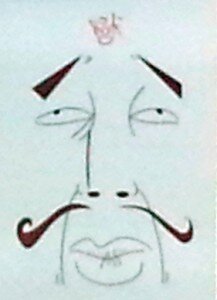 Abstract:
Abstract:
The talk introduces and analyses three lead users and creators of parody videos and the social networks emerging around them.
Through these analyses I show that spoof videos constitute not only a space where young generations can engage with each other, communicate their anger and dissatisfaction, fun and hope, and where they participate in socio-cultural and political debates, but also create a space where they can experiment with their new skills, new ideas, and new citizenship.
View Henry’s PhD thesis: Seriously playful : the uses of networked spoof videos in China, described as “an insightful and ambitious account of a topic that is of prime relevance and importance” by Associate Professor Donna Chu, Chinese University of Hong Kong and as “an original and significant contribution to the study of this relatively new subject matter” by Associate Professor Amber Day, Bryant University.
Image above left: “can’t even be bothered to tell you off”—Jiaoshau.Image above right: courtesy of Free Digital Photos
Send in the Robots
 Presented by: Dr Eleanor Sandry, CCAT Research Fellow & Early Career Development Fellow, School of Media, Culture & Creative Arts, Curtin University
Presented by: Dr Eleanor Sandry, CCAT Research Fellow & Early Career Development Fellow, School of Media, Culture & Creative Arts, Curtin University
Time & date: 12 noon – 1.30pm, Wednesday 23 October 2013
Venue: Humanities Boardroom (209: 214), Curtin University Bentley campus
Abstract: Robots are sent into dangerous situations in relation to work, war, disaster and exploration. Some of these robots are completely autonomous, deciding what actions to take based on their perceptions of the environment and knowledge of the task. More often, they are partially controlled by a human operator, and the relationship between the human and robot must be negotiated as it alters from full human control to full robot autonomy and back. Successful human-robot interactions are often understood to rely on the creation of humanoid robots that communicate in humanlike ways. However, the majority of the robots discussed in this seminar are not humanlike in form or communicative style. In spite of this, they form successful multi-skilled teams with humans. How do humans and robots communicate and work together in these contexts? What ethical issues are raised by the formation of these close-knit human-robot teams?
VIEW Eleanor’s slideshow and hear her presentation
Image courtesy of Martin Fisch
Birth, Death and Facebook
 Presented by: Dr Tama Leaver, Internet Studies, School of Media, Culture & Creative Arts (MCCA), Curtin University and ARC Centre of Excellence for Creative Industries and Innovation (CCI) Research Fellow for 2013
Presented by: Dr Tama Leaver, Internet Studies, School of Media, Culture & Creative Arts (MCCA), Curtin University and ARC Centre of Excellence for Creative Industries and Innovation (CCI) Research Fellow for 2013
Time & date: 12 noon–1.30pm, Wednesday 25 September 2013
Venue: Humanities Boardroom (209: 214), Bentley campus, Curtin University
Abstract: While social media services including the behemoth Facebook with over a billion users, promote and encourage the ongoing creation, maintenance and performance of an active online self, complete with agency, every act of communication is also recorded. Indeed, the recordings made by other people about ourselves can reveal more than we actively and consciously chose to reveal about ourselves. The way people influence the identity and legacy of others is particularly pronounced when we consider birth – how parents and others ‘create’ an individual online before that young person has any identity in their online identity construction – and at death, when a person ceases to have agency altogether and becomes exclusively a recorded and encoded data construct. This seminar explores the limits and implications for agency, identity and data personhood in the age of Facebook.

